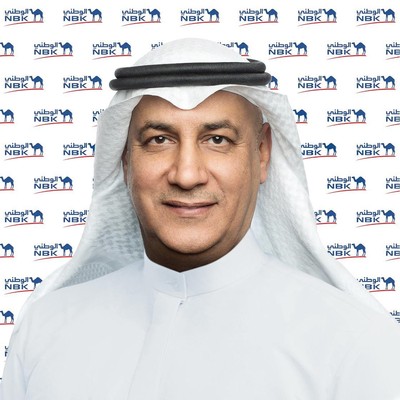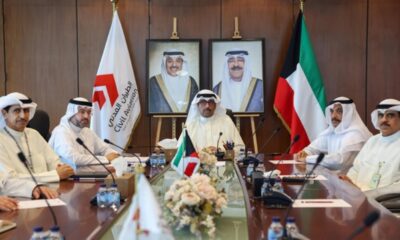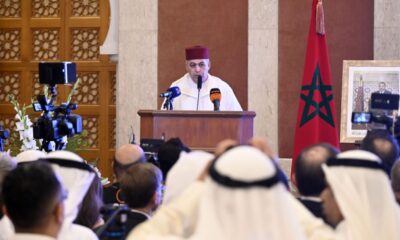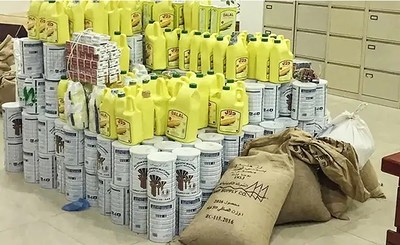KUWAIT CITY, Apr 5: Mr. Salah Al-Fulaij, Chief Executive Officer of National Bank of Kuwait – Kuwait, emphasized that despite global economic uncertainties—including oil price fluctuations, geopolitical tensions, and inflationary pressures—the bank remains resilient, leveraging its strong balance sheet, diversified revenue streams, and prudent risk management to navigate market volatility effectively, while maintaining resilience.
In an interview with Global Finance, Al-Fulaij highlighted that regulatory reforms, both local and global, such as heightened standards for transparency, anti-money laundering, and cybersecurity, demand significant investments in compliance and technological upgrades. He also emphasized that NBK is leveraging digital tools to ensure operational efficiency and adhere to evolving standards.
He added that Kuwait’s ambitious sustainability goals also present both opportunities and challenges as scaling up green projects and aligning stakeholders on long-term ESG priorities require significant coordination.
“Another element we have to keep up with is the rapid pace of technological advancement and the need for continuous innovation. Customers increasingly demand seamless, secured, and personalized banking experiences, prompting us to expand our digital banking platforms, invest in fintech collaborations, and adopt emerging technologies,” Al-Fulaij said.
He also highlighted that attracting and retaining skilled talent, especially in fields liketechnology and ESG, remains a persistent challenge across various industries. In this regard, NBK has established programs, such as NBK Academy and NBK Tech Academy, to equip local talents with the necessary skills and expertise.
Reforms & Opportunities
When asked about the opportunities arising from Kuwait’s economic reforms, Al-Fulaij stated: “Rreforms provide a pivotal platform to capitalize on transformative opportunities, particularly in digitalization, ESG efforts, and public-private partnerships (PPP)”.
Furthermore, he statedthat the government’s emphasis on smart infrastructure, fintech innovations, and regulatory enhancements, has created an enabling environment for NBK to accelerate its digital transformation journey. He further highlighted that the bank’s investments in advanced digital banking solutions, automation, and cutting-edge analytics equip it to offer seamless, secure, and scalable financial services.These initiatives not only elevate customer experiences but also enable SMEs to thrive, supporting the national agenda of fostering financial inclusion and private sector growth.
“NBK is also strategically positioned to play a leading role in PPPs, particularly in sectors like renewable energy, healthcare, and infrastructure. By leveraging our financial expertise and strong regional presence, we contribute to the successful execution of large-scale development projects that drive economic diversification,” Al-Fulaij added.
On the ESG front, Al-Fulaij explained that Kuwait’s reforms are opening doors for sustainable growth, indicating that NBK was the first bank in Kuwait to issue green bonds last year, a milestone that underscores the bank’s leadership in sustainable finance and its deep commitment to supporting green financing and sustainable infrastructure projects.
Moreover, he NBK continues to embed ESG considerations into its financing solutions, thus empowering clients to adoptsocially responsible investment strategies.
Al-Fulaij emphasised that reforms aimed at enhancing entrepreneurship and innovation create new opportunities for NBK to expand its retail and wealth management services, explaining that by incorporating ESG into the Bank’s product offerings, it empowers clients to make socially responsible financial decisions, aligning their investments with Kuwait’s broader vision for sustainable development.
Promising Sectors
When asked about the sectors that have the biggest growth potential, Al-Fulaij responded: “In line with Kuwait Vision 2035, NBK identifies high growth potential in renewable energy,technology, digital transformation, healthcare, logistics, and contracting”.
He explained that with Kuwait prioritizing clean energy initiatives, including solar and wind projects, NBK actively supports this transition by offering green financing solutions and partnerships to reduce carbon emissions and promote energy efficiency.
“Investments in fintech, e-commerce, and smart infrastructure are unlocking opportunities across industries. NBK continues to lead by enhancing its digital banking offerings, enabling seamless financial services, and supporting tech-driven businesses.The bank’s digital initiatives include partnerships with FinTechs, cashless payment solutions, digital onboarding and the recent acquisition of a 51% stake in Kuwait’s leading payment service provider, UPayments,” Al-Fulaij emphasized.
Speaking of Kuwait’s healthcare sector, Al-Fulaij noted that it was on the cusp of significant growth, referring toNBK’s instrumental role in financing large-scale healthcare projects, including hospitals and specialized medical facilities.
As for logistics services, Al-Fulaij highlighted Kuwait’s strategic location at the crossroads of the Middle East, Asia, and Africa, underscoring the significant growth opportunities in transportation and warehousing. He pointed out that this is particularly evident with the focus on mega projects such as Mubarak Al Kabeer Port, the modernization of Shuwaikh and Shuaiba ports, and the expansion of Kuwait International Airport’s new terminal.
He noted that NBK has played a pivotal role as a key financial partner in supporting these projects, adding that their advancement is expected to have a positive impact on the contracting sector as well.
Social Contributions
In response to a question about the bank’s social contributions over the past year, Al-Fulaij reaffirmed NBK’s commitment to empowering future generations by supporting initiatives that foster innovation, skills development, and entrepreneurship among Kuwaiti youth. Highlighting the bank’s key social initiatives, he stated: “Bankee is a pioneering program that integrates financial literacy into the curriculum, equipping students in Kuwait with the necessary tools to make informed financial decisions and grasp fundamental financial concepts. Additionally, NBK partners with educational institutions to support specialized workshops focused on entrepreneurship.”
He highlighted that the bank launched hackathons and mentorship programs, cultivating a culture of innovation and self-reliance. Moreover, for the fifth consecutive year, NBK sponsored the TAMAKAN Program, providingparticipants with specialized courses to enhance their career readiness.This ongoing commitment reflects NBK’s dedication to supporting young national talent and equipping them with the skills needed for future success.
“We are actively engaged towards women empowerment with our landmark program for women leadership, NBK Rise, which consists of various training modules to develop leadership, strategic communication, and interpersonal skills preparing women for higher leadership roles,” Al-Fulaij added.
Al-Fulaij expressed NBK’s pride with its ongoing commitments to the healthcare sector and most importantly its contributions to the “NBK Children’s Hospital” which has been recently witnessing unprecedented medical achievements in the area of stem cell transplant.

 Latest News24 hours ago
Latest News24 hours ago
 Latest News23 hours ago
Latest News23 hours ago
 Business15 hours ago
Business15 hours ago
 Latest News22 hours ago
Latest News22 hours ago
 Politics17 hours ago
Politics17 hours ago
 Politics5 hours ago
Politics5 hours ago
 Latest News13 hours ago
Latest News13 hours ago
 Latest News15 hours ago
Latest News15 hours ago
























